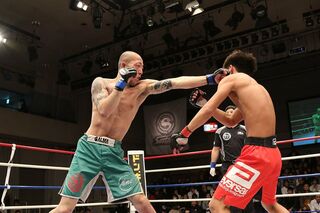
Most of us, when confronted with tasks that overly tax our minds and bodies, will take some time to strategize to help minimize this burden in the future. Fatigue, stress, and exhaustion are not pleasant states of mind, and can have devastating results — falling asleep at the wheel, burning oneself on the stove, or “losing it” with a loved one because we just need them to shut up for five minutes. The cost is high, and quickly impacts our quality of life.
One way to combat the drain on our cognitive currency is to regulate our day in a way that allows us to recharge; making sure we eat the right foods at the right time, trying to get some exercise, investing time in personal relationships and hobbies, and making sure to get the most out of our sleep. These regulations help us to keep it together in the short-term and can drastically improve our day.
Long term, though, most of us are packing other stuff into our lives as we’re trying to invest in our own value. Value for ourselves, value to our loved ones, and value to the world. The level of regulation required to increase our sense of value is costly, which is why it is better if it overlaps with a hobby or personal interest.
I don’t have any answers for how we should conduct or regulate ourselves in the short term, or what is appropriate and worthwhile for investing in our own value and sense of worth in the long-term. These are personal battles, fraught with wide-ranging emotion and moments of discovery — good and bad, and if you’ll permit me to sound corny for a moment — this is living.
The million-dollar question is how can work help you with your short-term needs and your long-term goals? Work is such a big part of our lives, we seem to turn to it to provide cathartic solutions, and indeed many industries have attempted to assist with the personal to try and bolster and reinforce happiness.
But I’ve always questioned the validity of this approach.
I’m not sure that racing to destroy the work-life/private life barrier is the best thing to do, even if expanding and evolving technologies provide us with the means of constantly being connected to our jobs. I think we’ve been fooled into thinking that if we allow our jobs to eclipse our private life and our identities, it demonstrates that we care and our work (company, senior management, colleagues) will value us more. This narrative feeds right into the totalitarian playbook. Opening up one’s private life to the Power.
Those short-term needs that we all have are already being overseen by our employers; exercise during the workday, socials and quiz events, getting-to-know-you sessions, and team exercises. We’re also presented with personality assessments that can help us recognize our strengths; something that reeks of cult-like behavior.
There is something unsettling about all of this, and I think we need to reexamine what we want from our jobs, and what areas of our lives our job can address.
This is where I think it’s useful to view a day at work as a boxing match.
We all come to work to fight. We fight to meet deadlines. We fight to come up with solutions. We fight to keep competing interests at the right balance. We fight to keep our guard up. We fight to get our wins sooner rather than later, but we know we might have to fight the rest of the day. We fight the constant onslaught in our inboxes, and we fight to keep the peace. We fight to keep control of our time. We fight to get through - it's no wonder we're so tired all the time!
When we come to work in the morning and climb through the ropes, we don’t discuss what went on in the training camp. We don’t discuss the emotional and the intellectual journey we’ve been on to make ourselves a better fighter. We don’t discuss our drives and our fantasies that help us to stay grounded so that we can land the hardest punches. The fight does the talking, and the fight doesn’t need to know what happened in camp.
All of the gut-wrenching, blood, sweat, and toil that went on in training remains the fighter’s privilege. This is the magic. This is the person. This is their value.
If we treat work as a fight, we can remain personally driven to improve and get more out of it. We would also recognize when it’s time to hit the shower, eat, and relax.
We don’t need the things we fight to know how we train, and if we permit this, it might take the sting out of our punches.
© Jack Pemment, 2020




